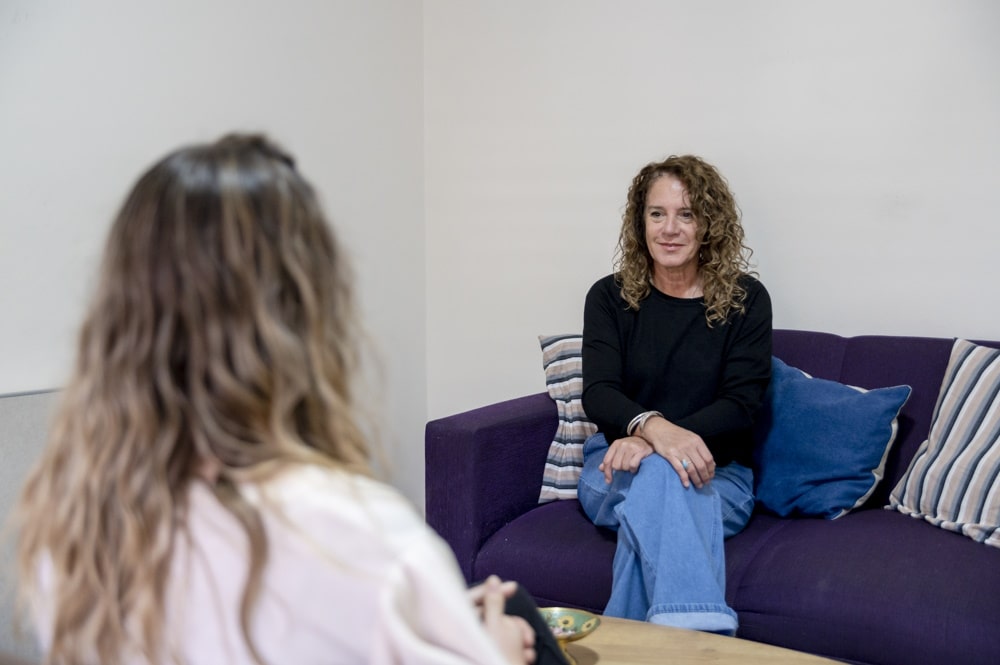At a Glance
Neurodivergent therapy challenges traditional models by tailoring support for autism, ADHD, dyslexia, and related conditions. Mark Greenaway-Robbins’ therapy technique is grounded in lived experience and flexibility to create an environment of safety, to encourage self-acceptance and resilience, and recognise neurodiversity as a difference, not a deficiency.
Therapy That Understands Your Brain
Everyone is different, and there’s no “right way” to behave or perceive things. Judy Singer, a sociologist in the 1990s, used ‘neurodivergent’ as a non-medical umbrella term to describe people with variation in mental function, including those with conditions such as autism, ADHD, and dyslexia.
Research indicates that 15% of the people in the UK are neurodiverse, with 1.9 million people being diagnosed with ADHD alone. Being neurodivergent isn’t a shortcoming or illness, it simply means you may benefit from some extra support to feel confident navigating everyday life.
I’m Mark Greenaway-Robbins, a neurodiverse, queer therapist offering you an open, affirmative, collaborative, and non-judgmental space to explore your thoughts and feelings. My neurodivergent therapy will help you feel supported in exploring your strengths, promoting self-acceptance and encouraging resilience.
Book a discovery call, email or message me to learn about my neurodiversity-affirmative approach to therapy.
What Does ‘Neurodivergent’ Really Mean?
If you’re neurodivergent, it means your brain works differently from the “standard”. The way you think, act, learn, or interact with others is different. This isn’t an aberration, but a way of experiencing life.
While neurodivergent people may have certain differences , they also have unique strengths. With the right neurodiversity-friendly support, you can embrace those strengths and build confidence in every part of life.
Some common types of neurodivergence include:
- ADHD
- Autism
- Dyslexia, dyspraxia, and other learning differences
One of the most common challenges that people with neurodiversity face is mental health issues, such as anxiety, depression, and OCD. You may also find it difficult to form or maintain relationships due to differences in communication style, perspective, or social understanding.
As an individual with autism and ADHD, I understand what it’s like to experience feelings of isolation and find social situations challenging. Having undergone psychotherapy and counselling myself at different stages of life, I draw on both my personal experiences and professional training as a relational integrative therapist to offer a neurodiversity-affirmative approach to therapy.
Book a consultation and visit me in London or Cardiff for in-person sessions.
Why Traditional Therapy Doesn’t Always Work
I believe therapy, personal experiences, and mental health can’t be boxed into categories, and nor should there be a one-size-fits-all approach. As an LBQTA+ ally, queer, and neurodivergent individual, I’ve travelled and lived in many countries. With my life experience, I’m here to create a safe, non-conforming, neurodiversity-friendly therapy environment.
A common struggle for neurodivergent people is feeling understood. That’s because most therapies are designed for neurotypical people. While the traditional therapy room is safe, it can often feel unfamiliar.
Common therapy techniques like CBT or psychodynamic therapy are often built for people who can clearly define their emotions, actions, and thoughts. This is where a person with autism, ADHD, or learning disabilities struggles, possibly causing their feelings of helplessness to increase.
Neurodivergent therapy addresses these pain points and creates a space where all your uniqueness is appreciated, with sessions designed around you. This isn’t a failure of traditional therapists or you, but a need for an inclusive, neurodiversity affirmative approach.
Here’s how the traditional approach compares to neurodivergent therapy:
Traditional Therapy Relies on the Client Recognising Their Emotions
During standard CBT sessions, you’re expected to self-report your emotions, moods, and changes in behaviour.
People with autism or other neurodivergent conditions can struggle to name or identify these emotions. In comparison, a neurodivergent therapist will spend more time understanding your struggles and challenges.
Misinterpreting Symptoms with Clinical Labels
People with ADHD suffer from executive dysfunction, emotional dysregulation, and cognitive laxity, making it difficult for them to be flexible or conform to the system. Rather than helping them with the right tools, traditional therapy can become another channel that urges them to conform, which can feel frustrating and challenging.
Instead of putting clinical labels on every neurodivergent trait, neurodivergent therapists like me will try to understand the behaviours that can be misinterpreted. For example, if you avoid dialogue during sessions, traditional therapists may label this as “lacking engagement”, but the neurodiversity affirmative approach will see it as a way of verbal processing.
I’m here to support your condition, rather than trying to “correct” it.
Non-confirmative Goals
Neurodivergent therapists understand that your goal of therapy isn’t to function better but to feel safe, understood, and not judged.
Many people seeking neurodivergent therapy can have a late diagnosis, or not even be diagnosed yet. During these times, it’s important for a therapist to help you embrace your uniqueness and navigate identity challenges, supporting your journey of self-discovery.
I share my own lived experiences to help create a collaborative, empathetic, neurodivergent-friendly environment where you’re allowed to share your most intimate experiences and thoughts. My goal is for you to feel appreciated and seen for who you are, rather than who you need to be.
Stress on Flexibility
People with ADHD, OCD, or autism struggle to be flexible and typically find their strength in rules and defined practices. This can create issues in traditional therapy techniques, which often focus on using flexibility and alternative perspectives to understand and interpret situations.
Neurotypical Communication
My travels and experiences as a queer and neurodivergent person make me better equipped to communicate with people who struggle with neurotypical communication. Traditional communication can be confusing or vague, making it challenging to express your emotions.
People with learning differences often need additional sessions for emotional identification, burnout, and meltdown, and my therapy offers tailored guidance for these needs.
How My Approach Supports Neurodivergence
My neurodivergent therapy comes from a space for personally lived experience. Here’s how I create neurodiversity-friendly sessions:
Individualised Experience
No two neurodivergent people are the same, and most of these conditions have a wide spectrum of symptoms.
For a successful therapy session, you don’t need to alter yourself to meet your therapist’s expectations. Instead, the therapy approach should be personalised to your needs. I avoid making neurotypical cues and offer alternate options such as visual aids, written reflections, and shorter sessions.
Attention to Sensory and Emotional Safety
Before we begin, I’ll check with you if anything about my therapy room can be enhanced to help you feel comfortable. If our sessions are online, I also recognise that some people struggle with Zoom fatigue and may need shorter sessions tailored to their needs, or with breaks during a session.
Collaborative Approach
Neurodivergent people have varied expectations; some people prefer rigidity, while others prefer a more fluid approach. I’m here to work with you to create an approach that meets your therapy needs and expectations.
I understand the exhaustion from constant social pretence to appear “normal”, so during our sessions, I’ll regularly check in to see what’s working for you and how I can help you feel more comfortable.
Let’s Work Together, In a Way That Works for You
With my lived experience with ADHD and autism and my early experiences in therapy, I’m here to support you through a collaborative, relational, integrative, and neurodiversity-affirming approach.
If you’re seeking neurodivergent therapy online, or in-person, in Cardiff or London, please reach out in whatever way feels comfortable.
Gain support from a professional who appreciates you and sees you for who you are.



